#als movie reviews
Text



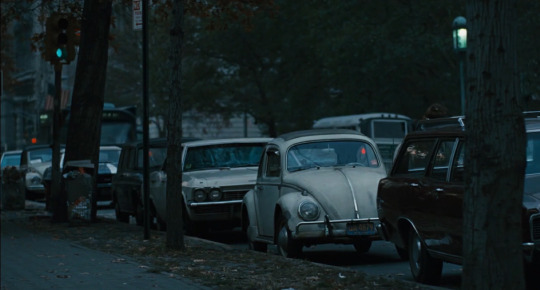
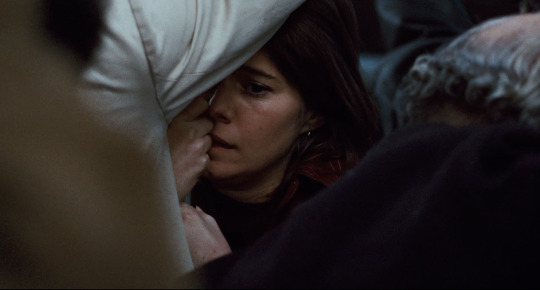
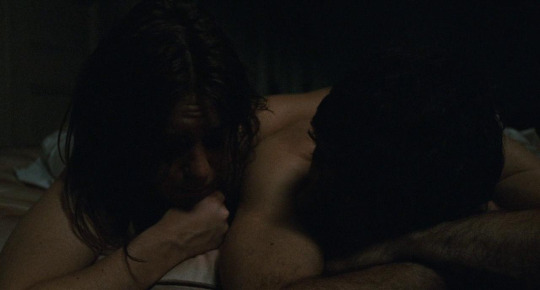
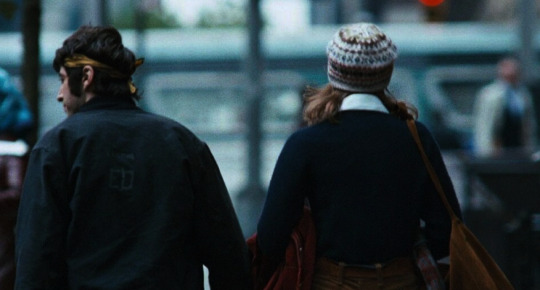
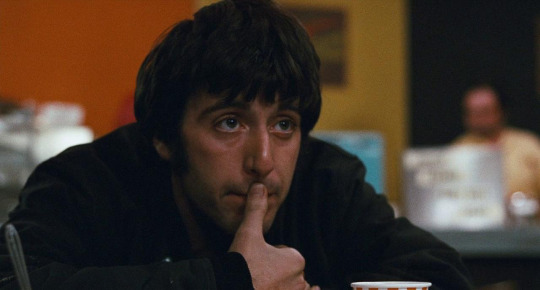
a film a day.
‘the panic in needle park’ (1971), dir. jerry schatzberg
letterboxd rating: ✭ ✭ ✭ ✭ ✭
#al pacino#criterion channel#films#cinema#film frames#film#aesthetic#movie review#cinematography#film stills#cinephile#film community#the panic in needle park#movies#composition#screengrabs#screencaps
156 notes
·
View notes
Text
youtube
Paul Muad'dib Atreides | THE ONE WHO POINTS THE WAY (Dune: Part Two)
Paul Muad'dib Atreides | THE ONE WHO POINTS THE WAY
link: https://youtu.be/e6ro6c4a7vk
"...I see a holy war spreading across the universe like unquenchable fire..."
#paulatreides #lisanalgaib #dune #DunePart2 #DunePartTwo
#Paul Muad'dib Atreides#bene gesserit#dune explained#dune part 2 review#duna#Dune#Paul Atreides#Paul Muad'dib atreides#Dune 2#Lisan Al Gaib#Paradise#Lisan al gaib paradise#paul muad dib atreides silence#paul atreides tribute#epic dune video#emotionnal paul atreides#the rise of paul atreides#muad'dib#slyfer2812#Dune: Part Two#Timothée Chalamet#dune#dune part two#lisan al gaib#mahdi#paul atreides#paul muad'dib atreides#dune part 2#Dune Part Two#dune movie
23 notes
·
View notes
Text

#letterboxd#movie#movie review#movie reviews#movies#movie recommendation#movie recommendations#review#reviews#the godfather#pixels#francis ford coppola#al pacino#adam sandler#filmbro
25 notes
·
View notes
Text
"Weird: The Al Yankovic Story" is okay, but as a lifelong fan of the man and his work I'm a little upset that they played the movie so straight. I was expecting some jokes or goofs, but it's pretty much just details of his life from childhood through the 80s. Daniel Radcliffe gives a great performance, and all the cameos are fun to see, so watch it at least for that.
245 notes
·
View notes
Text

American Psycho
2000 ‧ Horror/Comedy
#america#american psycho#80s#vintage#grunge#al pacino#the godfather#patrick bateman#nickelodeon#nick bateman#batman#horror#movies#movie review#christian bale
18 notes
·
View notes
Text
Feliz 84 cumpleaños al único e irrepetible, la leyenda en persona, Alfredo James Pacino. Mi eterno amor 🎉💟

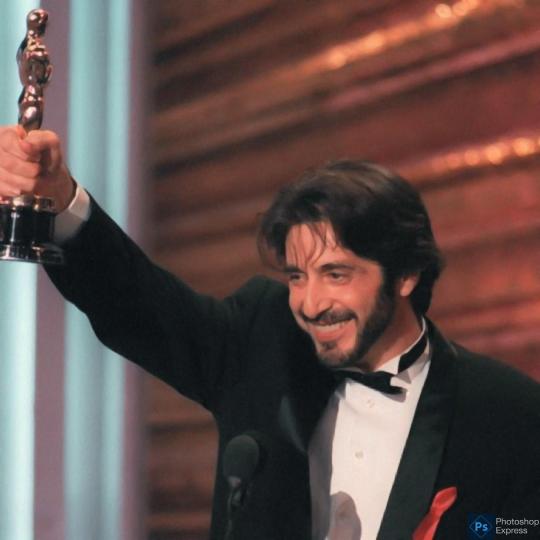
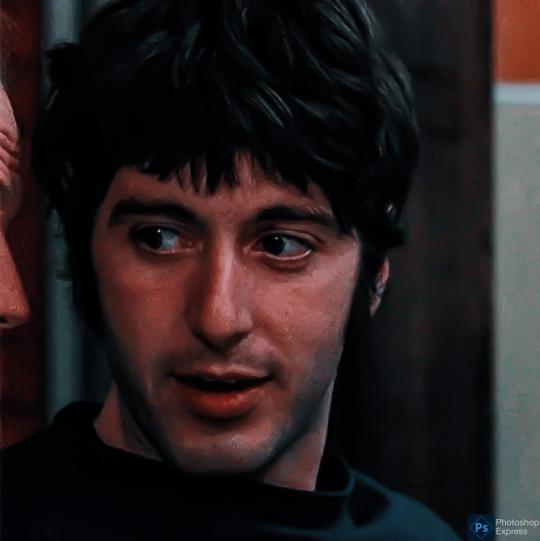
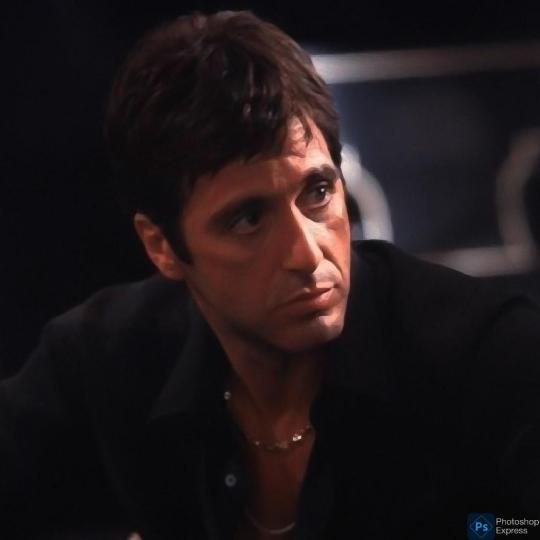
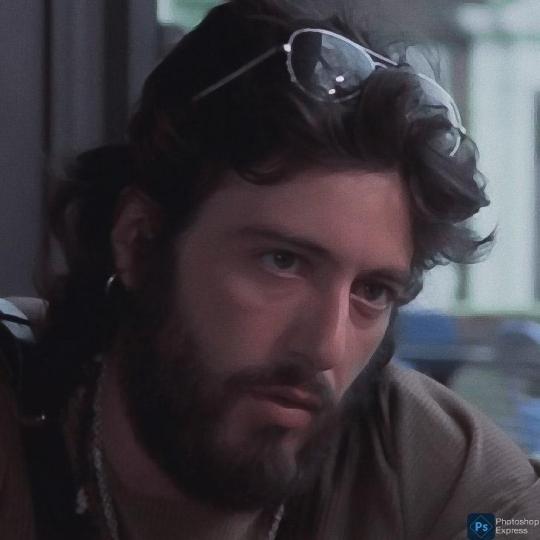
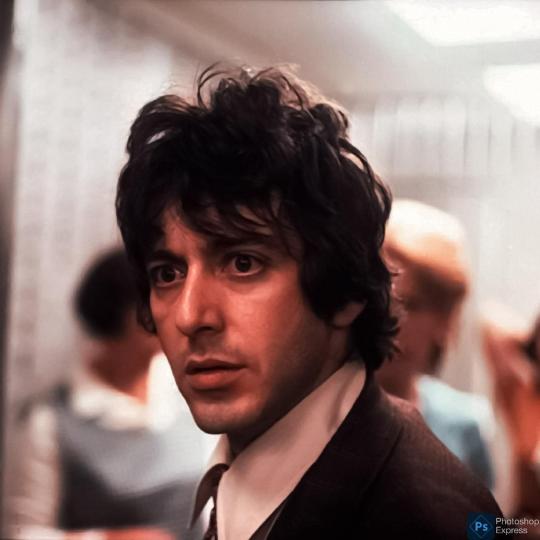
#al pacino#movie review#alfredo james pacino#love this movie#cute boys#scarface#Dogod Day alternoon#serpico#fiction#fitness#cine 90s#movie recommendation#self love#i love him#ap#al#tony montana
8 notes
·
View notes
Text
The Power of Dune Part Two’s Final Act: Stepping Away From the Messiah
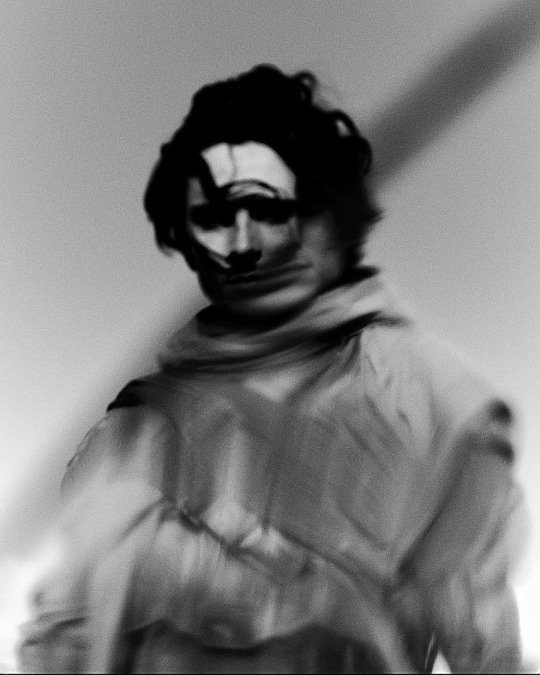
Stunning photo by Jack Davidson
So I didn't think I would be talking about Dune in my first post for this page (considering that I intended it to be more Star Wars focused and also since I haven't read the Dune books yet), but the final stretch of this movie has been on my mind ever since I left the theater a few weeks ago.
(Spoilers for Dune: Part Two)
It's strange in the sense that we are suddenly distanced from Paul, and also in that the climax seems to accelerate the story faster than ever before. So far (in both movies), there has been a pretty strong focus on Paul and a very deliberate pace that let all the plotlines simmer. It’s a masterclass of immersion, both technically and emotionally. The humanity of its characters aren’t lost in the many elements at play. Paul is a character whose empathy and how it makes him conflicted with what is placed before him make him quite likable. Spending so much time with him, Chani, and Stilgar makes us grow attached to them, not just because they’re the heroes, but because they feel real. And yet we’re pushed away. In the third act Paul's dark transformation happens swiftly (you’d initially think from how it’s shown the water of life turns you evil), and by the story’s end we only see Paul from a distance in the eyes of other characters, unable to see him resolving the concerns we’ve wrestled along with him, unable to get a good read on his motivations anymore. The final battles with our heroes happen rather quickly as victory over the Harkonnans and the Emperor comes pretty easily. On one hand this shift could feel unsatisfying, and the first time I watched the movie I was a little unsatisfied. But I’m not here to say this is a fault of the movie; in fact, this shift results in something greater happening, and it’s the most powerful triumph of Part Two’s story.

By the end, even when we do zoom in on Paul we're not sure what's really behind his intensity. (All the Dune screencaps are from Dune Perfect Shots 4K on Twitter).
Dune’s story up until this point, from what I know about these two films at least, is all about complexity, discerning the many variables, the need to carefully monitor both these variables and one's own behavior. The importance of mastering oneself. (This video by Alt Shift X talks about this really well, and it definitely helped me understand this aspect of the story better). But Paul’s tests, like the Gom Jabbar in Part 1 and the worm ride in Part 2, carry not just that significance but also the danger of a prophetic horror being more and more certain. Therein lies an irony - you can gain power but tied to it is something much larger that’s out of your control. This becomes pretty key to the whole story, and there’s something I was reminded of that helped me put all this into perspective. I brought this up in my first-time watch review too, but I think I have more to say about it now. But bare with me as this might end up being convoluted.

In one of my classes this semester we read the poem “The Promised Land” by Gabeba Baderoon, and I was really struck by this image that it alludes to called the Angel of History. Described by Walter Benjamin based on the painting Angelus Novus by Paul Klee, it depicts an angel whose wings get caught in the winds of a destructive storm “blowing from Paradise.” It’s trapped in the storm’s momentum going forwards with no way to escape. All the while, its head is permanently twisted backwards, forced to watch the wreckage of the storm, named progress, gathering below it. From what we discussed in that class this disturbing image suggests that all the events of history, all that we do or achieve or create, is not a series of events affecting each other, but instead one ever-building catastrophe barreling forwards. Both the Bene Gesserit’s century-spanning machinations and Jessica’s usurping of it all by birthing a boy. Whether the Harkonnen house or the Atreides house controls Arrakis. All of these are merely before a future that’s larger than any of them individually; the messiah and his holy war will come regardless. Even if it’s towards her own end rather than that of the Bene Gesserit, Jessica still uses their propaganda to facilitate his rise. The two houses end up converging anyways in their family trees with the Baron, and Muad’dib Atreides embraces it, merging the two families’ ideologies like the Kwizatz Haderach was always intended to. Whether his sudden ruthlessness is him embracing his desire for revenge or actually a strategic choice after sifting through the past and futures laid out, we’re denied of knowing for sure as we look at him from afar, and this denial by the film questions if the answer even matters much. The Angel image and the movie’s narrative dispel the idea that we have the capability to easily fix things when we make progress. It’s a notion that renders reasoning or means as having little ability to empower, envisioning us all moving towards the same horror anyways. It suddenly renders all the complexity of the plot and these competing ideas and factions inconsequential. And I don’t mean that in a bad way — it’s crucial to what the film is really getting at.
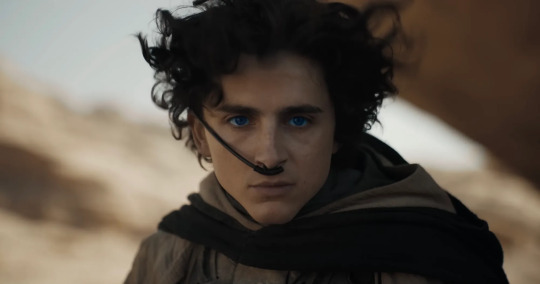
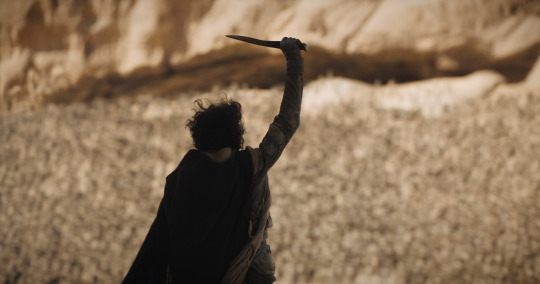
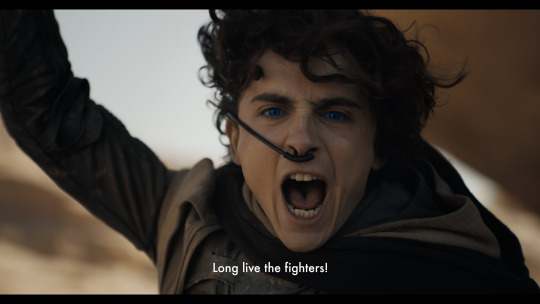
"We're Harkonnens... so that's how we'll survive. By being Harkonnens."

“You of all people should know there are no sides, Reverend Mother.”
Now, it’s fair to question the nihilistic bent of this (are we in the real world truly powerless to stop to this continuous catastrophe???), but the Angel of History and Dune use the stories they put forth as cautionary tales where that all-encompassing bleak endgame are meant to deconstruct our notions of progress and control. If we are powerless to shape history, how strong is the power we wield? And how good is the power we wield? As we strive for “paradise” and celebrate attaining it we often forget what happened as we got there, and we fail to see where we really are. If the reasoning for our actions doesn’t empower us, the effects of them in turn are even more debasing. The Baderoon poem that alludes to the Angel of History does so to examine this too. In its discussion of the end of apartheid and the ushering in of a democratic South Africa, “The Promised Land” weaves in the legacy of the jazz pianist Moses Molekelwa, who, despite influencing the poem’s speaker’s attitudes towards social progress (and appearing as an idol in that sense), is shown as getting off the hook in the eyes of history for strangling his wife to death. The triumph of his music is remembered while his wife’s murder is willfully forgotten, and the poem concludes that “our forgetting is also our home, which is why we will never leave the old country.” Baderoon warns of when the celebration of progress doesn’t factor in the ugly parts we still carry with us into the future, and her allusion to the Angel of History works to convey that danger. (Obviously the real anti-apartheid struggle of South Africa is very very different from the story of Dune, and I wouldn’t want to compare them to each other. Dune’s exploration of complicated progress instead speaks more towards the dangers of charismatic leaders and the co-opting of a cause). The only thing I want to highlight is just that Dune, Baderoon’s poem, and the Angel of History all hone in on the need to not lose sight of the now.


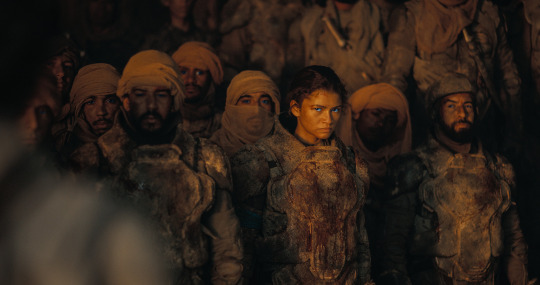
This is why the third act’s shift away from Paul works so well. The film doesn’t show people “forgetting” necessarily, but we do see them caught in the fervor without acknowledging what’s happening to them. Paul is an exception in that he sees it all: his arc sees him changing his perspective on the destiny laid ahead and taking control to ensure it happens on his terms. He doesn’t really turn evil, but since we’re denied of seeing past his new icy exterior as he looks ahead with his prescience, the film instead turns us back to the now, like the angel looking behind. We're with Chani now, the only (non-psychic) person who’s seeing this all. We already believe in Paul’s goodness. If we were to see what Paul sees and fully understand his reasoning, it would make it easy for us to downplay the costs. The story thus has us focus on the consequences of Paul’s path beginning to gather in real time, the Fremen being exploited as they are led into a coming bloodbath by their messiah.
And this is the sadness of it all, right? Things that were once honorable, like Jessica protecting Paul like she promised Leto and the legacy of Leto that Gurney hopes for Paul to carry with him, are twisted into foul and manipulative actions. Good intentions and real connections, like Paul’s empathy, his and Chani’s relationship, and his and Stilgar’s friendship, all give way to the storm.
The quickness of the third act’s events compounds this danger. The path Paul takes may be the best possible option after considering all the variables, but the story doesn’t revel too long in the glory of his successful leadership and strategy.

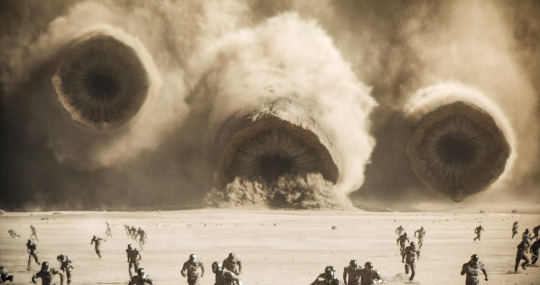
The awe-inspiring images speak not to just heroism but something volatile and intoxicating. It's not that the film oversimplifies the moral dilemmas at stake, but by letting the big battle, Gurney slaying Rabban, and Paul slaying the Baron happen all too easily, it removes the focus from only being the powerful exploits of Paul and the Fremen and adds emphasis on how they become like Harkonnens and how the Fremen become entrenched in Paul’s conquest. The Harkonnen bodies are burned like the Atreides were before them, and the Fremen Fedaykin ultimately fight carrying the Atreides banner instead of their own. They lose sight of this fact as they place all their faith in Paul, their cause and faith co-opted. It happens so fast and it can’t be stopped. We’re caught in the momentum of the storm raging, pushing us forward, and at the same time the film adjusts its focus to ensure that we don’t forget to recognize the consequences of Paul’s choices. This is what I find so compelling about this movie — we’re given a story that details the complexity of all things and also ultimately denies complicated factors and necessary evils of becoming excuses that wave the wreckage of progress away.
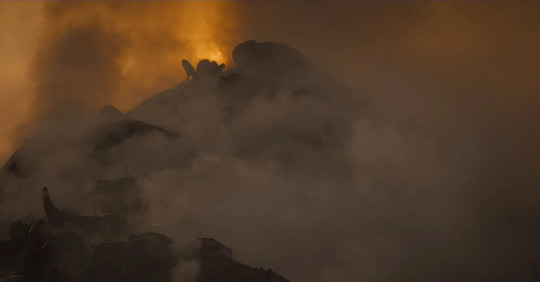
Hopefully this was enjoyable to read and wasn't pretentious or anything! Lemme know what you think about the movie!
#dune#long post#dune part two#dune movie#dune 2#dune part 2#dune 2024#paul atreides#kwisatz haderach#lisan al gaib#angelus novus#angel of history#determinism#frank herbert#denis villeneuve#gabeba baderoon#movies#movie review#movie discussion#movie analysis#film#film analysis#film discussion#media analysis#favorite movies#letterboxd#cinema#movie stills#movie photography#movie adaptation
6 notes
·
View notes
Text
Ocean's Thirteen (2007)

Inexplicably, the Ocean’s franchise didn’t sink into oblivion after the sewage that was Ocean’s Twelve. This third chapter in the series fares much better than its predecessor but never reaches the level of the original (neither the original original or the 2001 remake). Still, as another installment, it does offer the remaining fans more of what they want to see, which is something.
After Reuben (Elliott Gould) loses his investment in a new hotel-casino to his business partner, Willy Bank (Al Pacino), he suffers a heart attack and becomes bedridden. Danny (George Clooney) and the rest of the Ocean Club decide to get even by ruining Bank and his new establishment.
If you’re not endeared to the Ocean’s crew, this plot will be an uphill battle. "Boo hoo. Poor Reuben is so upset he’s not making millions off this gaudy casino that he’s become catatonic. Guess it’s up to his buddies to get revenge on his behalf instead of just convincing the proper authorities that he was strongarmed into signing a contract?" Towards the end of the film, the crew’s old nemesis, Terry Benedict (Andy García, whose character is brought back under dubious pretenses), sees millions of his money donated to charity without his consent. I wonder if any of the cash the protagonists end up swiping from Banks would’ve gone anywhere except their pockets had they not had a score to settle. While some of this is mitigated by the fact that Willy Bank is a jerk, what we're seeing feels like a whole lot of “the 1%’s problems”. There isn’t a love plot to make us believe this is about anything but money unless you count the brotherly love between the Ocean’s crew. Even that seems like a stretch.
In the first movie and even in the second in a “sure, whatever”, kind of way, it made sense for these 11 people (we’ll get to that number in a moment) to join forces. Now? It seems overly optimistic to think the random Chinese acrobat who doesn’t speak English would put himself at risk as he does here. Now to be fair, this story makes much better use of its characters than Twelve did. No one gets stuffed into a bag and shipped off to nowhere halfway through, for example. Everyone has a role to play and it works though it should be noted that neither Julia Roberts nor Catherine Zeta-Jones return.
You’re wondering who the two new members of the crew are. One is the aforementioned Benedict, who plays the role of a benefactor. The other is… Eddie Izzard as Roman Nagel. I think. The motif of adding a new expert to the crew with each sequel has basically disappeared, and for good reason. This series can barely handle the people it has on its roster. Adding more is becoming increasingly problematic but it’s also necessary. See, “The Bank” has insane security measures, the kind no one in their right might would even try to circumvent. On the one hand, this makes for exciting scenes that make you wonder how the lock will get cracked. On the other, it makes the plot feel manufactured. For example, there's this super secure room that contains expensive jewelry. The plan to get in? Have Linus Caldwell (Matt Damon) and his phoney-looking rubber nose seduce Bank’s right-hand woman, Abigail Sponder (Ellen Barkin). With the help of some magic pheromones, she’ll get so hot and bothered she’ll have no choice but to bring Linus into the only room in the whooooole building that's guaranteed to be deserted. Apparently, there are cameras in the bathrooms, the closets and her private office. It’s a horrible subplot made unintentionally comical by the fact that nothing happens between her and Linus. The movie teases nudity for at least 15 minutes. Ellen Barkin's chest is ALMOST falling out of her dress for so long it’s ridiculous. I thought she was slobbering at the mouth for some man meat but she’s not even taking off her clothes? What’s going on here?!
I’ve been mostly bad-mouthing Ocean's Thirteen because the film is constantly on the brink of crumbling under its own weight. I will still call it a “good” sequel because fans of this series will be happy with it. You hate the bad guy, there are enough laughs to keep you smiling consistently and the con is so complicated it’s fun to see all the pieces coming together. All of the actors are obviously having a great time. I’m in no hurry to watch it again but if you love love love the first, you didn’t mind the second and you want to know if you should watch the third, then I say “sure”. I say this despite feeling like twice was too many for me. (April 29, 2022)
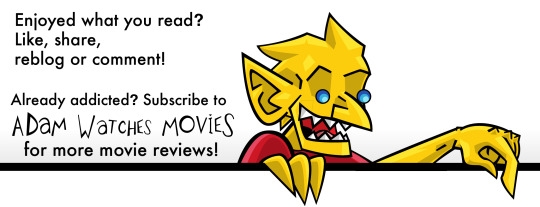
#Ocean's Thirteen#movies#films#movie reviews#film reviews#Steven soderbergh#Brian Koppelman#David Levien#George Clooney#Brad Pitt#Matt Damon#Andy Garcia#Don Cheadle#Bernie Mac#Ellen Barkin#Al Pacino#Casey Affleck#Scott Caan#Eddie Jemison#Qin Shaobo#Carl Reiner#Elliott Gould#2007 movies#2007 films
3 notes
·
View notes
Text
SCARFACE- 1983 ⭐️⭐️⭐️⭐️⭐️
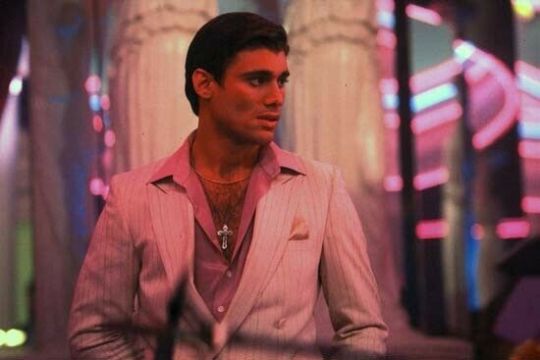
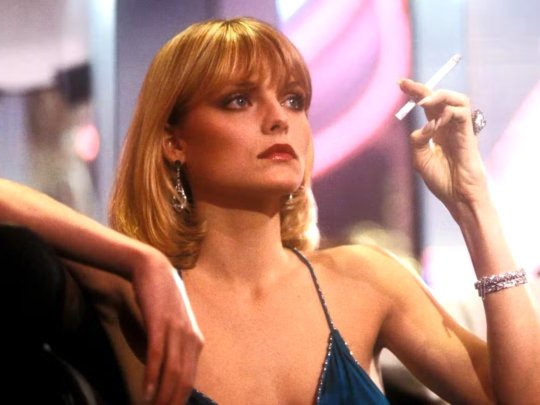

The world is yours....
Tony Montana, a determined cuban immigrant, arrives in Miami and gets to work on building a vast drug empire. As his power grows and his reach expands, his drug use, ego and increased paranoia threaten to bring him down.....
One of my favourite movies.
A real masterpiece. Just out of a 40th anniversary screening at the cinema and enjoyed it just as much as the first i saw it twenty years ago. Endlessly rewatchable. One of the greatest soundtracks/scores ever. Classic tracks like "Push it to the Limit' and an amazing theme by Giorgio Moroder. Great cast with a brilliant and slightly insane performance by Al Pacino. Iconic sass from Michelle Pfeiffer. A great turn from Steven Bauer as Manny. Also several memorable smaller roles lilke Sosa and Omar. Great dialogue. Flies in despite being nearly three hours. So many good quotes. An excellent rise and fall story that leads to an explosive and electrifying finale. The scene where he first goes to visit his mum always makes me sad. Id love one of those tigers.
Directed by Brian DePalma.

6 notes
·
View notes
Text
Oppenheimer spoilers below
Christopher Nolan.
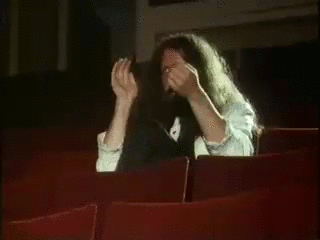
You done it again.
I’m sure I could touch on so many things in this movie. I might later, I might not. But leaving the theater I felt so deeply unsettled, and I wanted to touch on that, from my point of view as an amateur writer and someone starting to feel comfortable talking about cinematography (although I have no current plans to do much more than talk about it).
Now I’d like to start by saying that, if you haven’t seen it or it didn’t make that big of an impact on you, this is a long movie. I, myself, am no stranger to long movies and I think it was marvelously done. That being said, my memory tends to leave things to be desired, so while I am writing this rather soon after I watched and digested it, others may have stronger points/counter points/evidence/what-have-you.
With that out of the way, I’d like to talk about one facet of the movie that Christopher Nolan, imo, harnessed in a way that I did not expect. And it wasn’t color, it wasn’t camera perspective, it wasn’t even the timeline.
It was his usage of sound.
From the very beginning, sound has always been a key factor in this movie. In the trailer, the crackling of the radiation detector is ominously present. It is used less frequently in the movie than I had predicted, but when it makes its “appearance” it most certainly put me on the edge of my seat. It brings a sense of gravity to an already serious situation. Engrossed in the movie as I was, I admit the sound mainly made me uneasy because it demonstrated the presence of radiation. Looking back, I can add to that and say it may have also been used as a foreshadowing tool.
Now, I’m sure we’ve all heard sound used a foreshadowing tool. The little girl screaming for help is actually the protagonist with a shadowy past who can’t get the sound of the daughter/random child he couldn’t save out of his head. The words of an interrogation in the beginning of a movie finally get context half-way through when the timelines finally align. It’s been used, it’s been subverted, it’s nothing new.
Except when it is. In my experience, and I am the first to admit that I haven’t seen enough movies of the genre to have a definitive say in the matter, I have never been quite as unsettled or shocked by the background noises than while watching Oppenheimer.
Let me start with the sound that will not leave my mind. Those damned boots. I’d heard it at school pep rallys when everyone would stomp in the bleachers. I had never expected to hear it in a movie about the man who made the atomic bomb. When I first heard it, I thought it was an aesthetic choice, like picking the music to evoke a certain emotion. And while it is that, all of sound is, I never actually expected for it to be from such a central scene.
When the boots were first connected to a scene, a short, split-second, blink-and-you-miss-it shot of shoes-on-bleachers, it was early enough in the movie that I thought it was a flashback of a pep rally at one of his schools, maybe as a boy genius, and I let it go. Later on, when they show the full scene, it’s terrifying.
And then you can’t hear the boots at all.
For hours, all you could hear were those boots in the back of stressful scenes and now that they’re there, now that you can see them, suddenly they’re gone. You know what they’re supposed to sound like, so why would you need to hear them again? And it helps build the suspension, the tension that Oppenheimer is feeling during that scene. And so the next time you hear it in the movie, the next time those boots are stomping on the bleacher in the background when they are in a meeting or an interrogation, it pulls you right back into the stress and horror of the bleacher speech.
And then, of course, you begin to realize that while the timelines had been so well interwoven that it seemed like you couldn’t go two scenes without hearing those boots, it was always a very specific scene, a specific timeline that the boots would make an appearance. Because, of course, in one Oppenheimer hadn’t heard them yet, and in another it’s not Oppenheimer at all.
Another prominent sound that I mentioned earlier is the Geiger Counter (I finally looked up the name!). This is a foreshadowing of a different kind, more physically consequential than mental. This, I believe, foreshadows the heavy losses suffered later in the movie by the radiation poisoning. The blast itself only killed so many people, it was the radiation, as they are so fond of pointing out in the movie, that helped round out the total killed in the bombings.
I’ll admit that it’s a bit of a stretch, but I can see it being a small detail that was added in.
On another note, I’d like to address how Nolan also utilized the absence of sound.
Oppenheimer (movie) doesn’t necessarily have jump scares, per se, but rather I jumped a lot during the movie. More startled with a side of deep-seated dread rather than scared. Any way you put it, Nolan does a very good job of keeping me at the edge of my seat. I’ve mentioned earlier the lack of sound during the bleacher scene (containing about half of the many times I jumped during the movie) so I won’t go into that again.
Another part of the movie where he employs this is the bomb test. This is the culmination of years of hard work, the pinnacle of one of three (four?) timelines. And you can’t hear a thing. You get the countdown (a staple from the trailer), the drop, and then… nothing.
It’s a beautiful flash of light and an explosion but the whole time there’s not a sound to be heard. At first it feels like it’s gone just so you can look at the view and then as you’re lulled into security… the shockwave hits.
I can’t remember the last time I jumped so high in a movie theater.
And it’s used for every time you see the shockwave. Silence, wind, and then a force pushes everything back, rattling the house, whipping up the dust. It’s really iconic imo.
Anyway, I walked out fixated on the noises of that movie. And the cackling of the neon did not help my dazed state.
#oppenheimer#oppenheimer spoilers#spoilers for oppenheimer#I of course say all these things as a jealous writer who can only utilize these faculties if I find a way to write them down#as well as a starry-eyed movie-watcher#tbh the beginning of the movie was a little confusing for me#But I blame that on the fact that I hadn’t seen it before#Definitely one of those re-watch movies i think#Speaking of sound#I would love to see a psychologist/therapist go in depth#on whether or not Nolan’s usage of sound/light/hallucinations were indicative of Oppenheimer’s state of mind#and whether or not it was a symptom of something like PTSD#Or simply an artistic choice that was badly informed etc etc#very curious#if there is a video or article out there about it I would love to see it!!!#Kiki does movie reviews in the tags#Sorry I didn’t really mean to sound like a movie review when I wrote this but it just sort of came out like that#\ (ツ) /#anyway it was a really well done movie#The acting was ph en om en al#and definitely gave me an existential crisis at least once#would see again#and so should you#I may add more to this#but for now#adieu#just yelling into the void
6 notes
·
View notes
Text
youtube
Does Ant-Man Need to be a Big Deal to be Great?
No, this whole video is just telling you the answer is no and why I think that.
#Ant-Man#Hank Pym#Scott Lang#The Wasp#Janet Van Dyne#Nadia Van Dyne#Stinger#Cassie Lang#Astonishing Ant-Man#Unstoppable Wasp#Nick Spencer#Jeremy Whitely#Al Ewing#Marvel Comics#Comics#Comic Books#MCU#Marvel Movies#Retrospective#Review#Recommendations#Rant#Vlog#The Vacuuminator#Modular Media#My Video#Video#Youtube
9 notes
·
View notes
Text
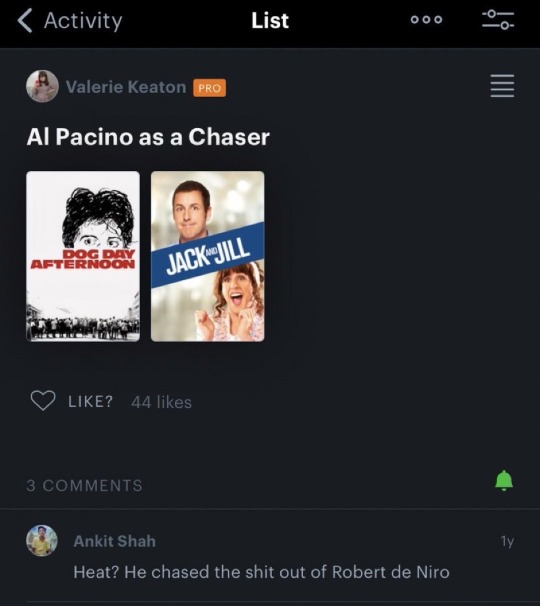
#letterboxd#movie#movie review#movie reviews#movies#movie recommendation#movie recommendations#review#reviews#al pacino#jack & jill#adam sandler#dog day afternoon#trans memes#trans pride#lgbt#lgbt community#heat#gay#trans#robert de niro
36 notes
·
View notes
Text
I would have liked the Weird Al film if it did more genre hopping and leant more into the absurd. As is, it’s a far too long sketch parody of the recent rock star biopic. Switching it up a few times to be parodies of famous films that also feature stardom would have elevated it and Dan Rad totally has the range.
Just imagine, ten minutes into the film that’s established itself as a classic beige graded rags-to-riches biopic with all the tropes, we switch to a neon horror section then a Music and Lyrics like romcom, then a black and white Anton Cobijn-esque brutalist part then we switch to a 50s musical (I’d prefer high camp à la Sunset Boulevard but the musical is a classic of the rise to fame genre) and end on Blues Brothers level madcaps like we did here.
We keep the same storyline but it stays dynamic, the same anachronisms still wouldn’t matter and Weird Al has enough songs to fit each tone change.
Weird is just not ambitious enough to recognize that Weird Al isn’t just the early 90s and just pop parodies but also not recognizing parody-pastiche as classic tradition in film, music and the radio show that launched him.
5/10 for wasted potential. Daniel Radcliffe gives it his all but is failed by a very predictable, not great, comedy. Too violent for kids, not enough fun for adults. It’s also a very reductive view of Mr Yankovic, his tastes, his skills and importance to nerd culture.
#saf#movie reviews#weird: the al yankovic story#To be clear: i'm saying it needed more bonkers#less safe more wftery more genres more pastiche more nerdery (less cameos)
25 notes
·
View notes
Text
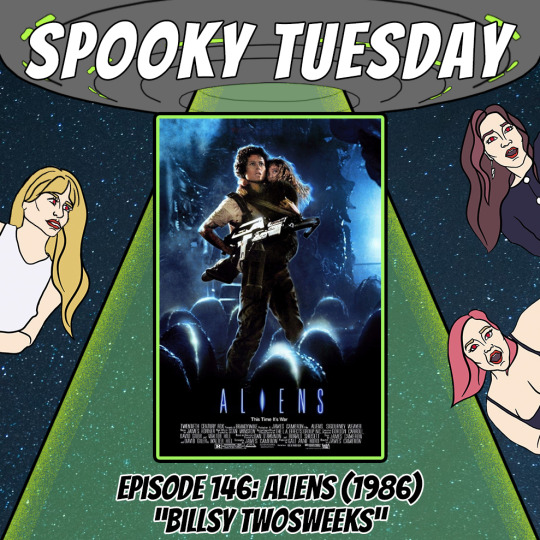
spooky tuesday is a (now not so new!) podcast where we’re breaking down all of our favorite slashers, thrillers, monster movies and black comedies on the new scariest day of the week.
which came first, the alien or the egg? alien (1979) may have raised that question, but aliens (1986) takes the investigation a step further as they tack on an s and get into the plurals. and boy are we getting into the plurals. this august, we’re all aliens all the time here at spooky tuesday, and when we came up with the idea for alien month, we knew we’d have to blast off with a bang. that’s why we’re heading back to deep space with the long-awaited sigourney weaver sequel as we pick up just about where we left off (give or take 57 years).
give spooky tuesday a listen on apple podcasts, spotify, iheart radio, or stitcher
#alien#aliens#aliens 1986#alien 1979#james cameron#sigourne#bill paxton#lance henriksen#jenette goldstein#mark rolston#paul reiser#al matthews#william hope#alien month#alien movie#horror movies#horror podcast#movie review podcast#horror movie podcast#horror movie review#gay horror podcast#horror#spooky tuesday#new spooky tuesday episode
6 notes
·
View notes
Text

A MUST WATCH Christmas movie for the holiday season!
Die Hard is a 1988 American action film directed by John McTiernan and written by Jeb Stuart and Steven E. de Souza based on the 1979 novel Nothing Lasts Forever by Roderick Thorp. It stars Bruce Willis, Alan Rickman, Alexander Godunov, and Bonnie Bedelia, with Reginald VelJohnson, William Atherton, Paul Gleason, and Hart Bochner in supporting roles.
#die hard#christmas movie#john mcclane#hans gruber#bruce willis#bromance#al powell#alan rickman#alexander godunov#bonnie bedelia#william atherton#action#movie review#1988#must watch
5 notes
·
View notes
Text


Al pacino en Serpico es tan Uff, no sé como podría explicar pero tiene ese tipos de ojos que cuando alguien los mira le entran ganas de llevar una vida mejor.
7 notes
·
View notes